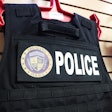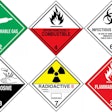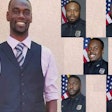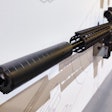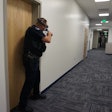Whether out of a desire to make the hook themselves, fear of another cop diming off their quarry, or simple arrogance, some cops like to be the “Keepers of Secret Stuff.”
This is a selfish posture that sometimes puts the welfare and safety of other officers in jeopardy, particularly as it relates to withholding information on suspects considered armed and dangerous.
Sometimes the info blackout is warranted. Certain surveillance operations can be compromised if too many people know what’s going on. In other cases, you may be working on an operation where there are already sufficient personnel involved and enough time and resources allocated to ensure that it will be a success. And of course, you could have the suspect in a contained environment wherein his seizure is virtually inevitable. These are all good reasons not to worry about sharing information with fellow officer or even to avoid doing so.
But in the majority of situations keeping information to a select few can be selfish and even dangerous.
Consider, for example, surveillance operations that do not run 24/7, where suspects are occasionally at liberty to be detained by patrol officers who may not know what they're in for once they pull such suspects over, or otherwise detain them. At these times it’s best to share the info.
It’s also a good idea to share recently acquired street intel on the last known locations of wanted gang members, or previously unknown locations where they hang out, or what G-ride they're tooling around in. If a parolee at large just happens to have been hanging out at a local watering hole, woe be unto the officer who picks an inopportune time to do a bar check. And woe unto the cop who withheld the information that might have helped him.
Selfish rationalizations for keeping information in house include: It's my collar, my informant, my work, etc. The other guys don't want/need/deserve to know, and wouldn't do anything with the info anyway (a contradictory notion given the foregoing concern). But the bottom line is that it is often the result or selfishness and arrogance.
And the irony?
Where would these cops be without the knowledge and experience gleaned from other officers.
Perhaps the most pernicious withholding of information is when the officer who has it does nothing with it.
Yes, I know that some officers simply do not respect the information given them, or requests made of them to stay away from locations because of ongoing surveillance. And these brethren who don't appreciate or respect the confidentiality of shared sensitive information should be held accountable, but not at the wholesale expense of other officers.
It is surprising to still find such mindsets in an age where computer data is routinely shared between agencies, often to the collective benefit of all involved.
But there are still holdouts. One way to change the attitude of these officers is by giving recognition where it is due. Maybe cops would be that much less in perceived competition with one another if we all shared the credit.
On a local level, the lack of information sharing can result in the shootings of individual officers, shootings that might have otherwise been averted.
On a national level, it can result in a failure to prevent another 9/11—just as it did the first time.






